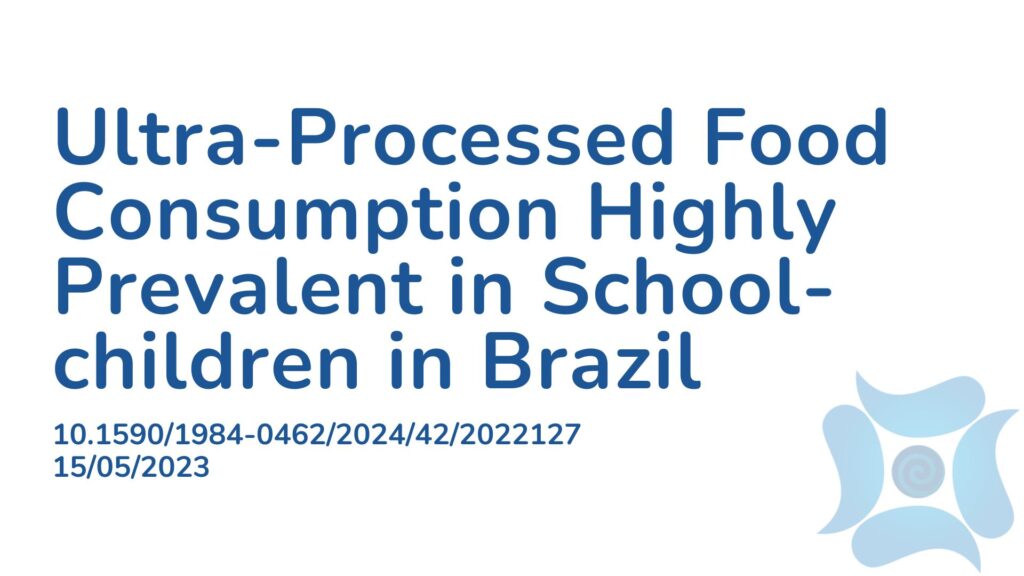Summary:
The global obesity epidemic is increasingly effecting children and adolescents. It has been estimated by The World Obesity Federation that 71 million children aged 5-9 years are currently obese. They have also predicted that in Brazil, 7.7 million children will be obese by 2030. Obesity in childhood is associated with multiple factors, such as genetics, poor physical activity, inadequate sleep and dietary habits such as a high-intake of ultra-processed foods and drinking sugar-sweetened beverages. Consumption of ultra-processed foods has been associated with weight gain, metabolic syndrome and the build up of dangerous adipose fat in childhood and adolescence. According to a Brazilian national survey, almost 20% of the calories consumed by Brazilian children over ten years old included ultra-processed food and that approximately 98% of school-children aged between 13-19 years consumed at least one ultra-processed food each day. Evidence has emphasized that a high consumption of ultra-processed foods by children can lead to a low intake of several nutrients such as essential fatty acids, vitamins, minerals and fiber, which can lead to impaired growth and put children at risk of multiple comorbidities. The aim of this study was to evaluate the rate and factors associated with ultra-processed food consumption in the public school system in Brazil. The paper is a cross-sectional study conducted with school-children aged between 7-9 years of both sexes. Their food and physical activity intake was assessed using questionnaires. The results showed that the prevalence of ultra-processed food consumption was 69.6% per day and that this number was associated with not eating breakfast, consuming an ultra-processed food as a mid-afternoon snack and low physical activity. The authors concluded that there is a high prevalence of ultra-processed foods consumption in Brazilian public schools and that these dietary patterns were associated with unhealthy dietary habits.
Abstract:
Objective: To evaluate the prevalence of ultra-processed food consumption and associated factors among children enrolled in the public school system of the city of Barbacena, Minas Gerais, Brazil. Methods: This is a cross-sectional study conducted with schoolchildren aged 7–9 years, of both sexes, enrolled in state public schools. Food intake was assessed using the Previous Day Food Questionnaire and the level of physical activity by the Previous Day Physical Activity Questionnaire. The listed foods were classified according to the extent and purpose of industrial processing, using the NOVA classification. Pearson’s χ2 test, Fisher’s exact test, χ2 with Yates correction, and Poisson regression were used in the statistical analysis, estimating the crude and adjusted prevalence ratio, with 95% confidence intervals. Results: The prevalence of daily ultra-processed food consumption was 69.6%. After adjusted analyses, the consumption of ultra-processed food was associated with the omission of breakfast, mid-afternoon snack, supper, low physical activity, and consumption of risk foods. On the other hand, consumption of in natura or minimally processed foods was associated with older age, the consumption of lunch, mid-afternoon snack, dinner, and protective foods. Conclusions: There is a high prevalence of ultra-processed foods consumption, associated with unhealthy dietary habits among schoolchildren. This highlights the need for nutritional counseling and educational actions, favoring healthy eating in childhood
Article Publication Date: 15/05/2023
DOI: 10.1590/1984-0462/2024/42/2022127



